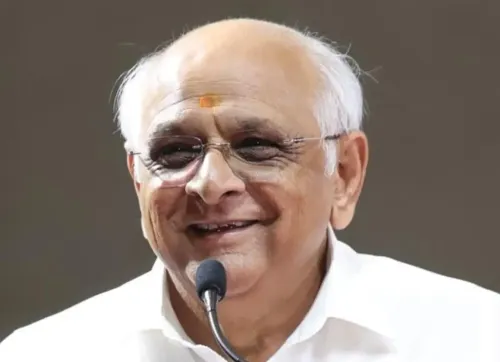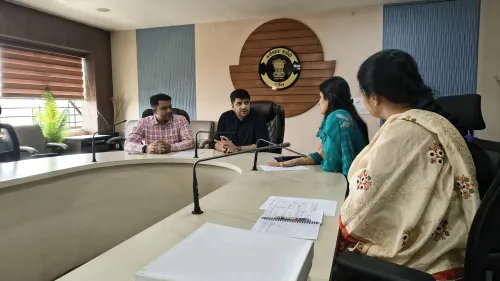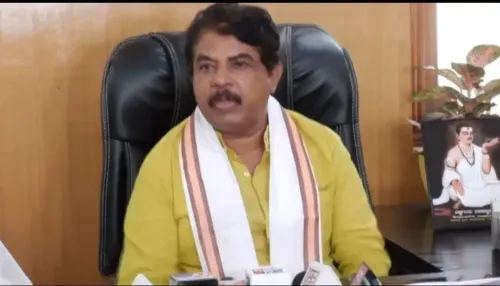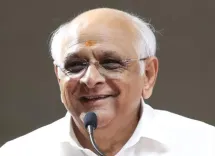What Message Did the Indian Military Send to Pakistan?
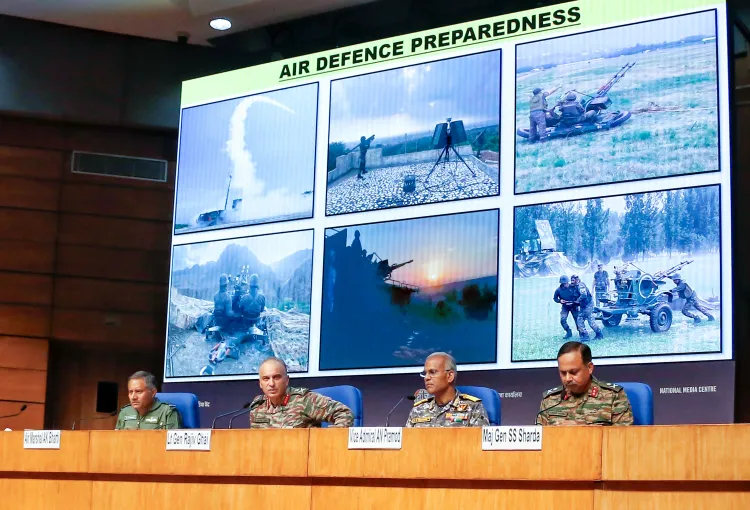
Synopsis
Key Takeaways
- Indian military warns of strong retaliation against any future provocations from Pakistan.
- Operation Sindoor aims to dismantle terror networks across the border.
- Indian Navy maintains strict surveillance of Pakistan's naval activities.
- Military leaders emphasize the importance of precision in operations.
- Ongoing diplomatic efforts are crucial for regional stability.
New Delhi, May 11 (NationPress) Following the recent 'understanding' between India and Pakistan, the leadership of the Indian military declared on Sunday that any future acts of adventurism from Pakistan or its terrorist factions would provoke a resolute and punitive response.
Three high-ranking military officials, Lt General Rajiv Ghai, Vice Admiral AN Pramod, and Air Marshal Awadhesh Kumar Bharti, emphasized that the Indian military is tasked with maintaining peace while protecting its sovereignty and preventing escalations. The senior officers provided significant insights regarding ‘Operation Sindoor’ during a press briefing on Sunday.
A temporary truce was established to reduce hostilities and promote a return to normalcy. However, at 1900 hours (7 p.m.) on Saturday, a violation was reported, leading to increased vigilance within the Indian defense infrastructure.
‘Air Marshal Bharti: “Cannot Disclose Number of Pakistani Planes Downed”
When discussing the military operations, officials confirmed that “no breach” of India’s borders or airspace took place.
Instead, “India's focus was on dismantling terror hubs across the border,” Air Marshal AK Bharti stated, adding, “All our pilots have returned safely.”
India’s aerial defense strategy was highlighted by the interception of Pakistani drones and missiles aimed at military sites.
These threats were successfully neutralized before reaching their objectives, according to the panel of senior military leaders.
“What we have experienced over the last 3–4 days is akin to warfare,” remarked Lt Gen Rajiv Ghai. In a series of well-coordinated operations, one hundred terrorists were eliminated, including key figures like Yusuf Azhar and Abdul Rauf, both associated with the IC hijacking and the Pulwama attack.
In reference to a funeral video, Lt Gen Ghai noted that many may have seen those clips of prominent Pakistani figures attending those funerals.
Some relatives of terrorist Masood Azhar were also reportedly killed in the Indian operations.
These actions occurred across various locations along the Line of Control. The preparedness of the Navy was a crucial element of India's strategic measures, as clarified by the senior military officers. Extensive exercises were conducted in the Arabian Sea to evaluate the readiness of weapon systems.
“The Indian Navy has maintained strict surveillance of Pakistan's naval activities, ensuring a strong defensive posture,” stated Vice Admiral AN Pramod.
“We possess both a quantitative and qualitative advantage to deliver significant blows, fully commanding the maritime domain.
“We hope Pakistan will not dare,” he continued, adding, “This time, if Pakistan attempts any action, they are aware of our potential response.”
During the briefing, Air Marshal Bharti firmly asserted that India's goal was precision rather than merely counting casualties. The military leaders reiterated that every action was carefully calculated to neutralize threats with appropriate force, ensuring that “adversaries cannot exploit weaknesses or escalate tensions further.”
Air Marshal Bharti stressed that the conflict was not with Pakistan's military but rather with terrorist networks.
The three military leaders reinforced their dedication to preserving peace.
“While the situation remains tense, India continues to fulfill its mandate — safeguarding its sovereignty while discouraging escalations,” the officials affirmed.
The international community is closely monitoring the developments as diplomatic efforts progress, with hopes for a resolution that leads away from conflict and toward lasting stability.

